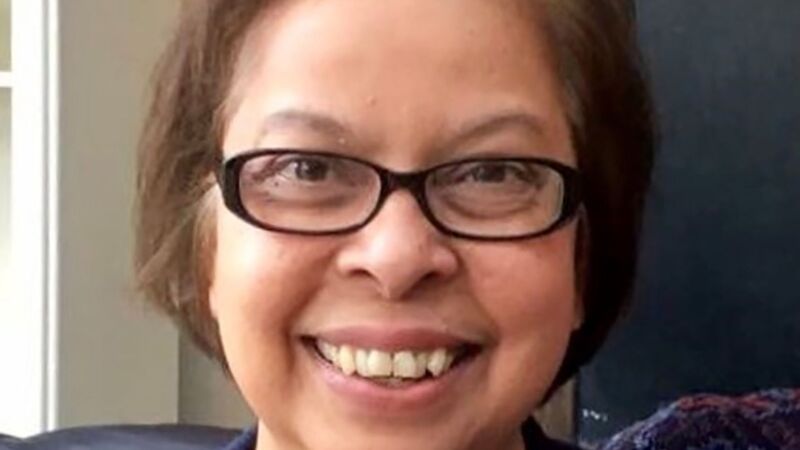You are viewing your 1 free article this month. Login to read more articles.
Bonnier Books UK introduces equal family leave and other initiatives as gender pay gap widens
Bonnier Books UK has announced a raft of inclusivity initiatives including equal family leave as new figures showed its median gender pay gap widened from 10.4% in 2019/2020 to 32.5% in 2020/2021.
Effective from January 2023, new parents who have worked at the publisher for more than two years will receive six months of full pay, while its Inclusion and Representation Action Plan 2022 also outlines plans to partner with schools to launch a work-experience programme to support students aged 16 to 18 from disadvantaged socio-economic backgrounds.
Chief executive officer Perminder Mann said: “I’ve juggled family and work demands throughout my career, so I know how challenging it can be. Since I became chief executive officer three years ago, Bonnier Books UK has been on a journey to become a more inclusive employer and I’m so proud that we’re now offering six months of paid family leave to new parents.
“Creating a culture that supports equal parenting roles is vital if we’re to achieve a truly equitable workplace where everyone can succeed.”
Research conducted for the report found that Bonnier Books UK’s median hourly pay gap—something it isn’t compelled by law to publish due to there being fewer than 250 staff (the legal benchmark) in each of its respective entities, Bonnier Books UK Trade and Igloo Books—saw an increase from 10.4% in 2019/2020 to 32.5% in 2020/2021. The mean gender pay gap reduced, however, from 21.9% in 2019/2020 to 19.1%.
To calculate the mean pay gap, all employees’ rates of pay are added together and divided by the total number of employees, compared to the median pay gap, which is reached by finding the midpoint in all employees’ hourly pay and discarding the lowest and highest rates of pay or "outliers".
HR director Anna MacLaren May explained the median gap was in part due to a higher proportion of men in the upper two pay quartiles compared to women; there has been a small reduction in the percentage of women in the upper two quartiles, while the percentage of men in the upper two quartiles has increased since the data was last gathered.
“We continue to ensure that men and women are paid fairly, consistently and equally in all like-for-like roles. However, we’ve identified that the key drivers of the gender pay gap are structural,” she said.
“For example, a challenge for us as an employer continues to be attracting a greater number of women into our operational roles and encouraging more male candidates to apply for our junior publishing roles.
“When we examine the data, we can see that the company’s operational roles tend to be carried out by men and that most of these roles fall within the upper two quartiles, where we have a higher proportion of male staff."
MacLaren continued that it was “important to recognise” the size of the business and the number of roles were significant factors in the gender pay gap results. “Even a very small number of people leaving the business can have an impact on the gender pay gap and can cause the results to suggest that there is inequality of pay,” she said.
The company also found that overall the ethnic representation of staff showed little change from 2020 findings, remaining in line with the UK population, but that there are signs of progress with fewer job applicants than current staff identifying as White British (77% of staff, 54% of candidates). This was based on a survey completed by 57% of staff, so "only offers a partial view".
Additionally, a survey of 24% of Bonnier Books’ UK authors and illustrators showed an 8% increase in multi-ethnic representation across its publishing lists to 17%, more closely representing UK society (14%). It says ongoing reporting and monitoring will demonstrate the extent to which these results are part of a continuing trend towards increased ethnic representation on its publishing lists, and that the small sample size does not show the full picture.
As part of its action plan, Bonnier Books UK will also launch an interview shadowing programme, broaden inclusion and equality awareness training for staff and relaunch its website careers pages.
For its authors, the publisher has pledged to offer practical support and encouragement to aspiring female novelists of all ages and backgrounds, from across the UK and Ireland, as Royal Circle Patrons of the Women’s Prize for Fiction’s Discovery Programme and to relaunch the Wilbur Smith Unpublished prize, among other activities.
It has also announced it will henceforward publish its Inclusion and Representation report every three years. The current report is the second of its kind after an inaugural report was published last year.
Since then, the organisation has introduced initiatives including the creation of a pregnancy loss policy in consultation with the charity Tommy’s, increased salary levels for interns and increased minimum salaries for junior roles and equality awareness training for all, including additional training for hiring managers.
Mann said: “It’s been fantastic to see the positive feedback from our authors, illustrators and staff on this action plan. However, it’s also become clear that—quite rightly and above all else—they value concrete, tangible action.
“We believe this is the best way forward to ensure that we continue to track our progress in all areas, while prioritising our time and resources to drive meaningful change.”



















